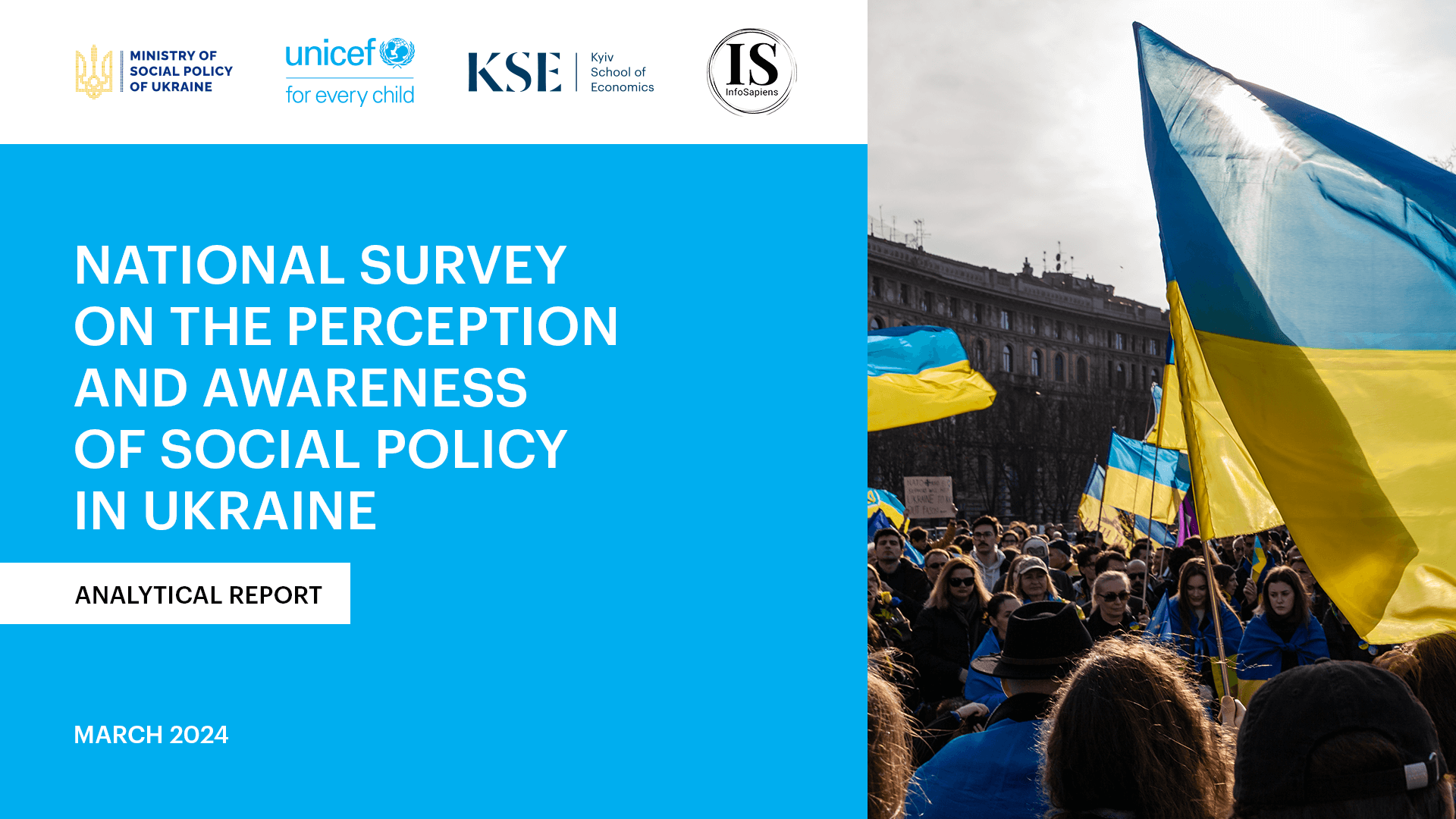- Kyiv School of Economics
- About the School
- News
- KSE presents findings from the first wave of the national survey on perception and awareness of social policy in Ukraine
KSE presents findings from the first wave of the national survey on perception and awareness of social policy in Ukraine
10 December

The Kyiv School of Economics, in partnership with Info Sapiens, at the request of the Ministry of Social Policy and with the support of UNICEF, has unveiled the results of the first wave of the National Sociological Survey. This study, involving 2,047 respondents from across all regions of Ukraine, provides an in-depth analysis of the key aspects of the social system, including satisfaction with social services, the effectiveness of social benefits, and attitudes toward the pension system.
“Social policy during wartime is not only about support but also resilience. It is crucial for the state to adapt social programs to the needs of the population while fostering trust in institutions,” emphasized Yuliia Markuts, Head of the Center of Public Finance and Governance at KSE.
Key Findings of the Study Include:
- – System Effectiveness: Only 22% of respondents consider the social support system effective, while 48% rate it as ineffective.
- – Social Services: A significant gap in awareness persists, with 60% of respondents being poorly informed about available services. Just 3% understand “social services” as defined by the official classifier.
- – Pension System: A striking 79% of respondents perceive the pension system as unfair due to low benefits, with 45% of pensioners lacking clarity on how pensions are calculated.
- – Adoption: While 26% are open to considering adoption in the future, key barriers include bureaucratic complexity (44%) and financial constraints (34%).
- – Veteran Support: Among veterans and their families, 46% of veterans and 56% of family members find the support system ineffective, with urgent needs for free medical and psychological assistance.
Experts highlight the need to enhance public awareness of available services using digital and traditional media. Streamlining the process for accessing social services, especially through digitalization, can reduce bureaucracy and improve efficiency.
Transparent mechanisms in the pension system are essential to help citizens understand the link between contributions and payouts, reducing inequity. Additionally, specialized programs for veterans’ reintegration and support for adoptive families can address critical gaps.
The second wave of the survey is scheduled for late 2024 and will assess progress in implementing reforms and identify new priorities for social policy.
The full results of the first wave are available in both Ukrainian and English.
The Kyiv School of Economics extends its gratitude to UNICEF for supporting this project. The opinions, conclusions, or recommendations are those of the authors and compilers of this publication and do not necessarily reflect the views of UNICEF Ukraine and the Ministry of Social Policy of Ukraine.
